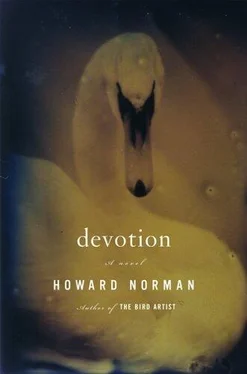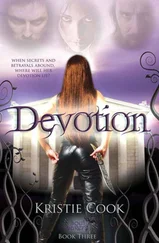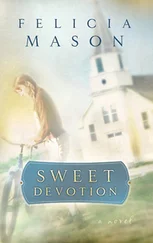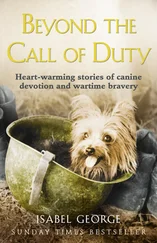“I don’t tell my authors how to schedule their time, Mr. Kozol, but let’s try to settle on a reasonable deadline, shall we? I prefer not editing until a first draft is completed. I’ve worked different ways with different writers, but that’s my preference. Might that suit you?”
“This is my first book, but it sounds fine.”
“Tecosky Estate, Parrsboro, Nova Scotia — still your address?”
“Yes.”
“Good. Well, busy day here, Mr. Kozol, busy day in progress. Congratulations, finally. Glad to have caught up with you. A contract will be sent within a month. Look it over.”
“Thank you very much, Mr. Macomb.”
“Lunch again at Durrants when you’re next in town?”
“Of course.”
That afternoon near the pond, David showed Macomb’s letter to William. “I take it you’d like me to report this to Margaret?” he said. “But good for you. Some form of employment, at least, when you most need it, whatever your and my daughter’s living arrangements. Maybe write to Isador and Stefania. Thank them for letting me keep you on. I think once the child’s born, a modest raise in salary might be forthcoming. Considering their devotion to Margaret.”
All over Nova Scotia, the heat wave continued without reprieve through October. Some days were tolerable, others stifling, the nights on average fifteen to twenty degrees warmer than what was typical of the season. On the health front, William now walked up and down the stairs for exercise; he’d extended his daily constitutional, half a mile from the mailbox along Route 2 and back. His voice therapy had ended; he was reading articles from National Geographic, and sea and island tales by Robert Louis Stevenson and Joseph Conrad, aloud in a moderate voice at night in bed. “Nothing like being read to,” he’d joked to Maggie. His primary anodyne was aspirin (also a glass of whiskey before sleep).
As for David, his bruises — brought about by what William referred to as the “Edinburgh-Parrsboro Express,” as if he’d been waiting since childhood to throw a punch with such resolve behind it — lingered in lighter hues, and his jaw was still a bit numb. William had a folder of suggested recipes, provided by the hospital, and during the first few weeks of his son-in-law’s recovery, he had used an electric blender to prepare concoctions of meat, vegetables and vitamins in liquid form, which David ate mostly through a straw. On October 21 David had his jaw unwired, an arduous procedure that required an anesthetic. William took him home from the hospital at 3 P.M. in the truck, a sudden deep rut in the road jolting David’s skull like a relapse. Once in the guesthouse, David immediately took to his bed, and slept until four the next morning. He woke hearing static from the radio.
A few days later, William sat with David at the guesthouse’s kitchen table, eating a dinner of egg salad sandwiches, soft pear slices and ice water. They said little during the meal. David cleared the dishes and they repaired to the porch, where David pressed an ice pack to the side of his face. They sat in opposite porch swings, feet planted on the slat floor. “Both these swings need oiling,” William said.
“I’ll get to it,” David said.
They sat not talking for a good fifteen minutes, looking out toward the pond. Then William said, “Children’s zoo keeps asking for our swans, but I told them as long as this heat keeps up, I prefer they stay here with us.”
William had got the swans in the pen before dinner; he’d seen a fox crossing to the estate side of Route 2. At about seven o’clock there was the slightest of breezes. Veering in from the north, all at once there arrived a flock of wild swans. In successive groups of six, eight and ten, they settled in the pond with scarcely a splash, spreading out with impressive equanimity over its breadth. From his vantage point William saw their initial approach; David turned in time to see them light. “Those are whistling swans. Cygnus columbianus. Naomi said they got here late August last year,” William said. “Let’s go down and have a look.”
They walked past the pen. The Tecoskys’ swans were worked up, a number of them with bills pressed to the fence. Their abbreviated wings and confinement seemed cruel. The whistlings continued to converge. The wild swans were on high alert; they formed a loose-knit gather, the biggest ones in a kind of half circle, facing outward.
“Let’s move back a little,” William said, “even though they’re unlikely to scare off.” Still, they had a fine view, and each in his own fashion felt it was an exhilarating sight. “Looking at them, you can get fooled into thinking the whole world’s working right.” Behind them the Tecoskys’ swans were moving loudly about their pen, yet the whistlings now all appeared to be sleeping. “I can’t imagine how bone-tired they must get. I saw swans out of an airplane once.”
“Where was that?” David asked.
“Right here over Nova Scotia. I went up in a small airplane with John Pallismore. He was a skywriting expert. Now that’s a story.”
“I imagine I’m going to hear it.”
“Keep looking at these wild swans. It’ll get you through.”
“Go ahead, William. Really, I’m all ears.”
“This was in 1972. I remember, because we’d hired someone, just for a few weeks, to clear brush and paint both porches. This fellow Sam shows up. No automobile. No money to speak of. Samuel Oliver — dodging the American draft, didn’t want the Vietnam conflict to murder him or otherwise postpone his life, was morally opposed, which he and I agreed on one hundred percent. Not everyone in Parrsboro did.
“Anyway, back to seeing swans from a plane. The thing is, you needed a special license to skywrite with an airplane. There was just John and one other fellow with skywriting licenses in the entire province. John was also our local mail carrier, all up and down Route 2. He supplemented his income with skywriting, though not much. The mainstay of his skywriting work came out of Halifax, where the money was. He’d be hired to help launch some business or other. The time in question, I flew from Truro to Halifax with him. His job that day was to spell out the name of a new hotel above Halifax Harbor. The plane was specially fitted for this purpose, and I joked it was like flying a big cigar, smoking all on its own, a cigar that could spell and write. Anyway, flying back to the airstrip near Truro was when we saw the wild swans high up, pretty close by.”
“That’s the story?”
“No, that’s just when I saw the swans. The story is, John Pallismore had a high school sweetheart named Ellen Tanning. And John had been smitten without decline after high school as well. It was unrequited, though. Ellen simply could not return John’s affection, eh? And as if that wasn’t problem enough for him, when Ellen married locally, she and her husband — Eammon — set up house in Upper Economy right along John’s mail route.
“That meant John had to stop by Ellen’s house every day but Sunday. This was torture for John. He delivered mail to the life he wanted, but he himself wasn’t living it.
“Ellen and Eammon had a daughter, Elsa-Louise, plus they’d adopted Ellen’s niece at age five, Mildred, who’d been orphaned. She came to live with them and fit right in. They weathered things well. The four of them attended church together and such.
“Then, when it was approaching Ellen’s thirty-fifth birthday, Eammon hired John Pallismore to skywrite a birthday message out over the Bay of Fundy. They worked out terms. John always got half up front, half when the job was done, if every word was readable. On Ellen’s birthday there was a social going on in Parrsboro, lots of people on the church lawn, which was how Eammon planned it — you want people to see your matrimonial devotion at work. And when all those people looked up, there’s the words HAPPY BIRTHDAY ELLEN, loud and clear and so beautifully written, like the heavens themselves were communicating.
Читать дальше












